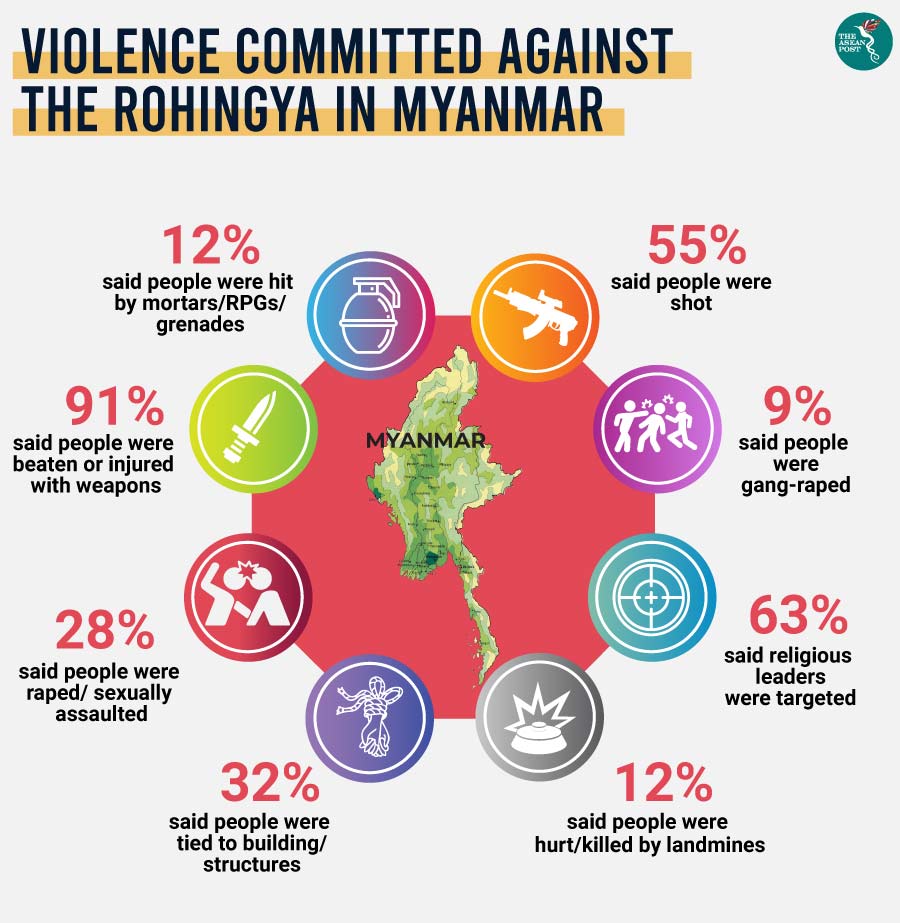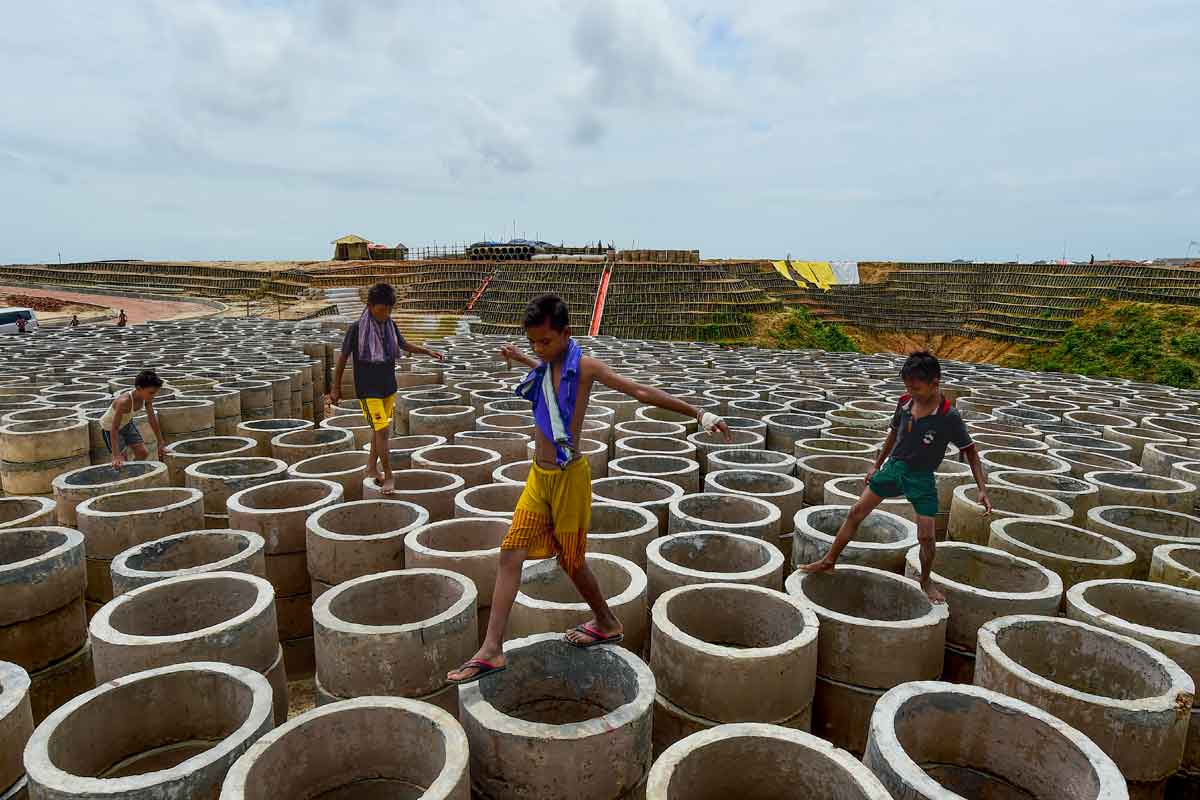The United Nations (UN) recently warned that the repatriation of the Rohingya already driven from the country by the Myanmar army remains "impossible", stating that Rohingya Muslims in Myanmar are already facing a "serious risk of genocide".
A report from a fact-finding mission to Myanmar, set up by the Human Rights Council, said the 600,000 Rohingya still living in Rakhine state remain in deteriorating and "deplorable" conditions.
"Myanmar continues to harbour genocidal intent and the Rohingya remain under serious risk of genocide. The country is denying wrongdoing, destroying evidence, refusing to conduct effective investigations and clearing, razing, confiscating and building on land from which it displaced Rohingya," the report, presented to the UN Human Rights Council in Geneva, read.
More than 700,000 Rohingya were forced to flee northern Rakhine state in western Myanmar during a 2017 military-led crackdown the United Nations (UN) has said included mass killings and gang-rapes executed with “genocidal intent”. Almost 400 Rohingya villages were burned to the ground during the violence.
Myanmar and Bangladesh signed a repatriation deal in November 2017 and agreed that the first batch of 2,251 refugees from northern Rakhine State would return to Myanmar last November, but the refugees refused to participate in the repatriation exercise over fears for their safety upon returning home.
The recently released report from the UN continues to say that the Rohingya were living in "inhumane" conditions, adding that more than 40,000 structures had been destroyed in the 2017 crackdown.
In July, the Australian Strategic Policy Institute (ASPI) said in a report that analysis of satellite imagery shows “no sign of reconstruction” in the overwhelming majority of former Rohingya settlements. On top of this, according to the ASPI, in some areas, destruction of residential buildings has continued.
“The continued destruction of residential areas across 2018 and 2019 – clearly identifiable through our longitudinal satellite analysis – raises serious questions about the willingness of the Myanmar government to facilitate a safe and dignified repatriation process,” said Nathan Ruser, one of the researchers at ASPI’s International Cyber Policy Centre, in a statement.
The ASPI report runs contrary to that of ASEAN’s disaster management unit which had praised the country’s efforts to ensure “smooth and orderly” returns. Meanwhile, Myanmar has repeatedly said it is ready to take back refugees and has often blamed Bangladesh for failed efforts to kick-start the process.

ASEAN’s push for repatriation
An ASEAN report in June by the bloc’s “Emergency Response and Assessment Team” predicted that half a million Rohingya refugees would return to Myanmar in two years. It gave a glowing assessment of Myanmar’s efforts to entice Rohingya refugees back from Bangladesh, where some 740,000 have taken temporary shelter in fetid, overcrowded camps.
The report drew sharp criticism from Rohingya groups, civil societies, and former state officials and diplomats across ASEAN.
Prior to the 2019 ASEAN Summit during the same month in Bangkok, Thailand, the Human Rights Watch (HRW) urged leaders of ASEAN to “drastically rethink their response” to the plight of the Rohingya. This was especially in the face of the 56-page leaked report which, according to the rights group, was developed without input from Rohingya refugees and “almost entirely” disregards the Myanmar government’s atrocities that led to mass displacement.
“ASEAN seems intent on discussing the future of the Rohingya without condemning – or even acknowledging – the Myanmar military’s ethnic cleansing campaign against them. It’s preposterous for ASEAN leaders to be discussing the repatriation of a traumatised population into the hands of the security forces who killed, raped, and robbed them,” said Brad Adams, executive director of HRW’s Asia Division.
Lim Jock Hoi, secretary general of ASEAN was quoted by Myanmar media last month as saying that the ASEAN Coordinating Centre for Humanitarian Assistance on Disaster Management (AHA Centre) is working under a specific time frame to conduct a preliminary needs assessment and arranging further visits to Myanmar and Bangladesh.
“We are working hard and in close cooperation with Myanmar on these matters,” Lim said.
If the UN’s newest report is anything to go by, then there is real cause for concern. On the one hand, ASEAN seems to be pushing for the repatriation of the Rohingya back to Myanmar, but on the other, Myanmar doesn’t seem like it’s becoming any more welcoming of the Rohingya despite what it claims. These mixed messages coming from Myanmar could be disastrous for the Rohingya if they are forced to return home. Could ASEAN discern what the best course of action is here?
Related articles:
